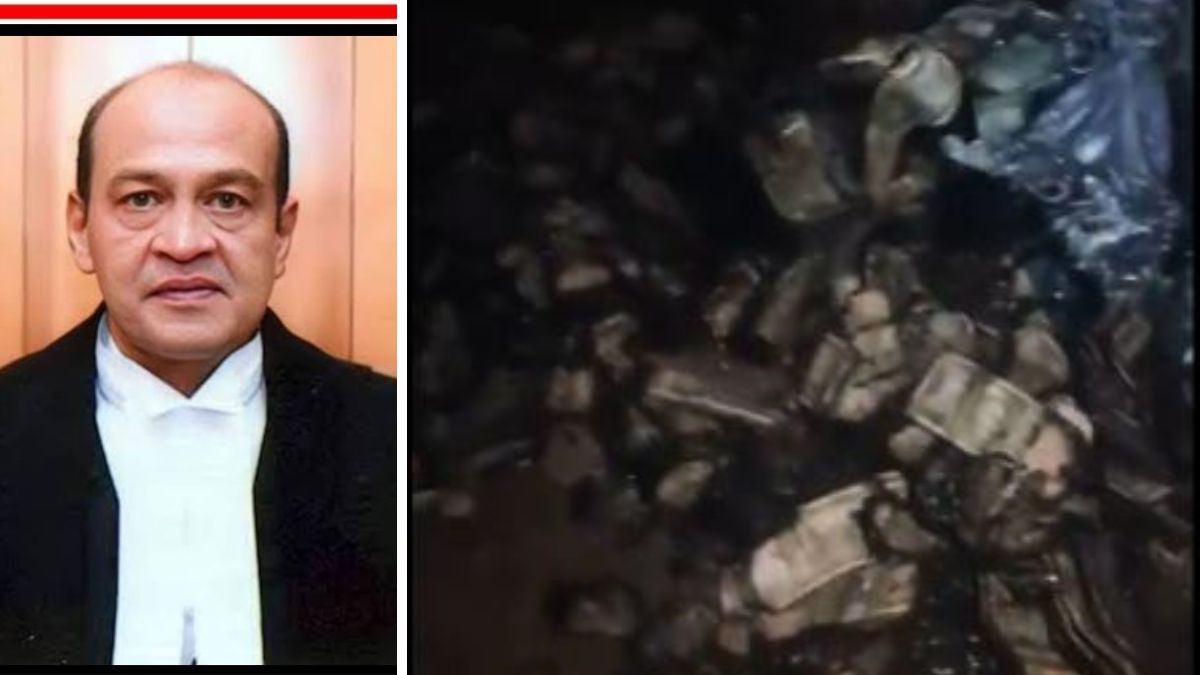Cash-at-home case: Justice Varma's removal case could reshape judicial accountability

Allahabad High Court Judge Justice Yashwant Varma’s decision to move the Supreme Court against the recommendation for his removal marks a rare and high-stakes standoff between a sitting judge and the government and judiciary.
Justice Yashwant Varma has challenged the findings of an in-house inquiry committee that indicted him over allegations of possessing unaccounted cash at his official residence in Delhi, where a fire broke out on March 14, 2025.
His challenge comes at a time just ahead of the monsoon session of Parliament, where a motion for his removal is expected to be tabled. Under Article 124(4) and (5) of the Constitution (read with Article 217 for High Court judges), a judge can be removed only by a Presidential order after both Houses of Parliament pass the motion with a special majority.
Justice Varma’s petition questions the inquiry process itself. He has alleged that the committee set up under the Judges Inquiry Act operated with a preconceived narrative, reversed the burden of proof, and concluded proceedings with undue haste.
What this means for him personally is both reputational and existential. If the Supreme Court grants interim relief or eventually holds the process unconstitutional, it could stall or derail the removal motion in Parliament. But if the Court refuses to intervene, the process could swiftly move forward, possibly resulting in Varma becoming the first High Court judge to be removed in over a decade.
Parliament has rarely acted on such motions, even when inquiry panels returned adverse findings. Judges P.D. Dinakaran and Soumitra Sen, for example, resigned before the process could be completed. Justice Varma has chosen to contest it, making this not only a legal test but also a moment of institutional introspection.
So, what lies ahead? First, the Supreme Court must decide whether to entertain Varma’s plea at all, given that Parliament is yet to act. Second, political parties will face the test of whether to back the motion in Parliament, knowing that the matter is sub judice.
If the court finds merit in his arguments, it could potentially quash the inquiry report or mandate a fresh investigation. However, if the court upholds the committee’s findings, Varma faces a tough road ahead. Resignation remains his only option to retain retirement benefits, as impeachment, requiring a motion supported by 50 Rajya Sabha or 100 Lok Sabha members under the Judges (Inquiry) Act of 1968 and would strip him of these privileges.
In sum, Justice Varma’s case could reshape how the judiciary views internal accountability and how Parliament navigates its disciplinary powers. With legal, political, and constitutional issues colliding, the coming weeks will be closely watched.
In his petition, Varma assailed the CJI’s letter to the President and Prime Minister recommending his removal. He claims this bypasses constitutional procedure and legislative safeguards under Articles 124 and 218.
“The procedure is administrative in nature and not grounded in statute or the Constitution. It cannot be used to recommend removal from a constitutional office. The inquiry began without any formal complaint, based only on presumptions and unverified information. This is contrary to the very design and objective of the In-House Procedure,” the plea stated.
The plea further stated that the Committee denied him access to evidence, withheld CCTV footage, and offered no chance to rebut allegations. Key witnesses were examined in his absence, violating natural justice. Its inquiry ignored core questions like who placed the cash, whether it was genuine, or what caused the fire. These questions were central to establishing guilt or innocence.
The plea also questioned how, within hours of receiving the final report, the CJI asked him to resign or face removal. No personal interaction or opportunity to explain his case was given.
“Earlier judges in similar situations were granted personal hearings before any action. The deviation in this case is arbitrary and violates established conventions. Contents of the confidential Final Report were leaked and misrepresented in the press. This aggravated the reputational damage and undermined the sanctity of the process,” the plea reads.
India